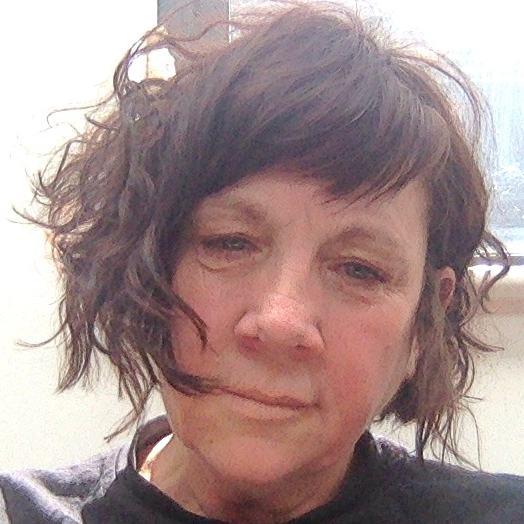Keynote Video

Jo-Anne Dillabough is Reader in the Sociology of Youth and Global Cultures (Education, Sociology of Education), University of Cambridge. She has been a visiting scholar at universities in Australia, Argentina, Iceland, Norway, and Sweden and was the former David Lam Chair in Multicultural Education, UBC. Dr Dillabough was co-editor of Education, Globalization and Social Change (Oxford University Press, University of Tokyo Press, 2012, with Lauder, Brown and Halsey), Challenging Democracy (Routledge, with M. Arnot), Troubling Gender in Education (with J. McLeod and M. Mills) and was co-editor of Gender and Education from 2012-2016. Other book publications including Lost Youth in the Global City: Class, Culture and the Urban Imaginary (with J. Kennelly, Routledge). Recent chapter and article publications include: Identity as Other and the Promise of the Narrative Imagination in Educational Theorising: Arendt and Ricoeur (Bloomsbury, 2020, editors Gunter, H. & Veck, W.) and Youth geographies of urban estrangement in the Canadian city: risk management, race relations and the ‘sacrificial stranger’ (with Yoon, 2018 in Children’s Geographies). Her work focuses largely on the spatialisation of youth disadvantage in ‘global cities’; sociology of education; urban youth histories, race and colonial transformations; the cultural and political geographies of youth activism, Social and Cultural theory & Youth Studies; history and memory studies and education; and Higher Education, State Crises and Populist Imaginaries (Syria).
In all of this work, Dillabough engagesconcepts such as region, space, place, nation, history, memory, empire, and the politics and power underlying knowledge making in research, methods and disciplines. ‘Sociology has always been the discipline driving my work but it never lives on its own in the 'ethnographic imagination'.
Higher Education, Violent Modernities and the ‘Global Present’: The Paradox of Politics and New Populist Imaginaries in HE
Higher Education constitutes a space that calls urgently for new understandings in the contemporary political moment. One way of establishing such an understanding of HE is to consider more fully the work of political theorists in relation to questions of power in the modern nation-state, particularly as these impinge upon the key problem of the rise of populism in the twenty-first century. In this task, I argue that a productive conceptual approach is to be found in the recurring idea of political paradox in the political philosophy literature (e.g., Rousseau, Honig, 2007; Laclau, 2005; Mbembe, 2019; Mouffe, 2000a, Mouffe, 2000b; see also Bose, 2019), an idea which I utilize to explore the role of conflicted national politics, moralising state practices, and scientific rationalities in reconfiguring the governing rationales of HE. Whilst Rousseau’s paradox of politics, as outlined in The Social Contract, is not my particular concern in this reflection, it provides a valuable medium for conceptualising HE as a ‘problem space’ for exploring its role in the emergence of populism in HE (Scott, 1997; 2004; Carr, 2019).
While most definitions of populism are remarkably consistent, the underlying reasons, processes and contextual particularities amongst institutions and groups are contested. Importantly, this definition cannot therefore suffice on its own in comprehending the place of populism in HE. Rather we need to conceptualise HE as an experimental problem space (Jessop, 2015, 2017a, 2017b) where strains of political populism can be energised as an articulated cultural modality of both national governance and transnational influences and conflict. For these reasons I adopt the positions taken broadly by Laclau (2005) of enmity, aggregated aggrievement and politically charged affective sentiments and ruptures as they inhabit modern states and impact on its institutions, one of which is HE (da Silva and Viera, 2019). Fundamental to these ruptures are the political paradoxes that inhere within the aspirations of liberal democracy globally, within nation states, and within liberal institutions such as the university.
In the discussion, I engage the work of political thinkers who have sought to understand the role of modern nation building, the changing features of modern power and authority, and the rise of bureaucracy and technocratic rationalities as they impact upon political institutions – in this case, how they impact particularly upon HE. I draw chiefly from Hannah Arendt, Bonnie Honig, Chantelle Mouffe, Etienne Balibar, Frederiche Nietzsche, Michel Foucault, Gurminder Bhambra, de Souza Santos and Achilles Mbembe, amongst others, to articulate the paradox that concerns us – to consider how and why populist strains of national and transnational governance may find a home in HE as a consequence of unresolved and contradictory political dilemmas and conflicts. Importantly, in this context, the paradox of politics in HE is not necessarily the naming of a discrete conflict between two political logics or the process of a mass movement seeking to overtake HE in the name of a popular constituency. Rather, it involves a highly complex set of forces - emerging out of the bureaucratic machinery of modernity and the fundamental paradox of liberalism itself - that positions the university as a testing ground for the tasks of politics and governance, particularly in relation to state crises, crises in knowledge making and in critique (see Kosselack, 1979) and geo-political conflicts.
Important Dates ECER 2021
01.12.2020 | Submission starts |
31.01.2021 | Submission ends |
01.04.2021 | Registration starts |
01.04.2021 | Review results announced |
15.06.2021 | Early bird ends |
25.06.2021 | Presentation times announced |
01.07.2021 | Registration Deadline for Presenters |
02.09.2021 | ERC 2021, online |
06.09.2021 | ECER 2021, online |